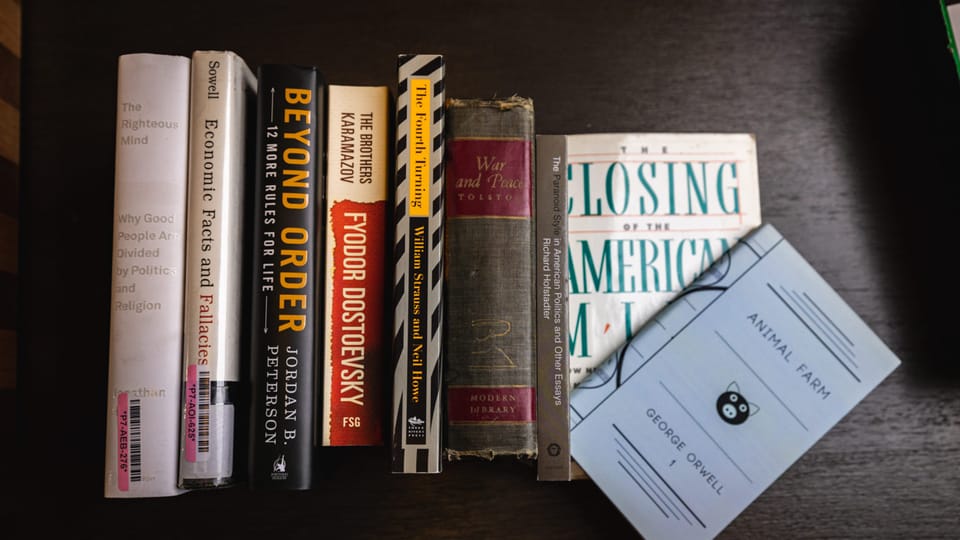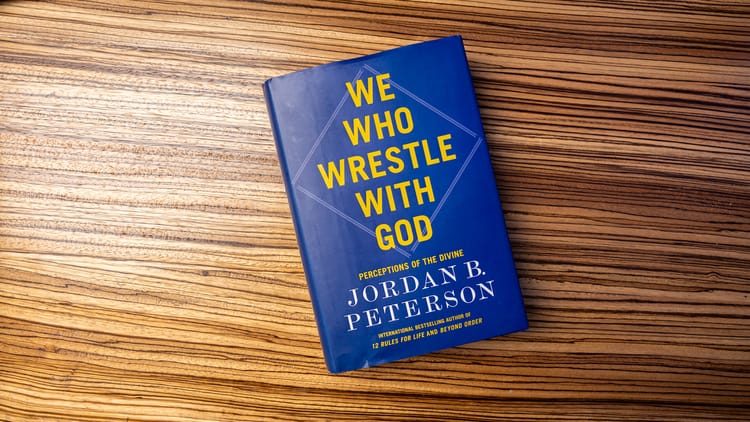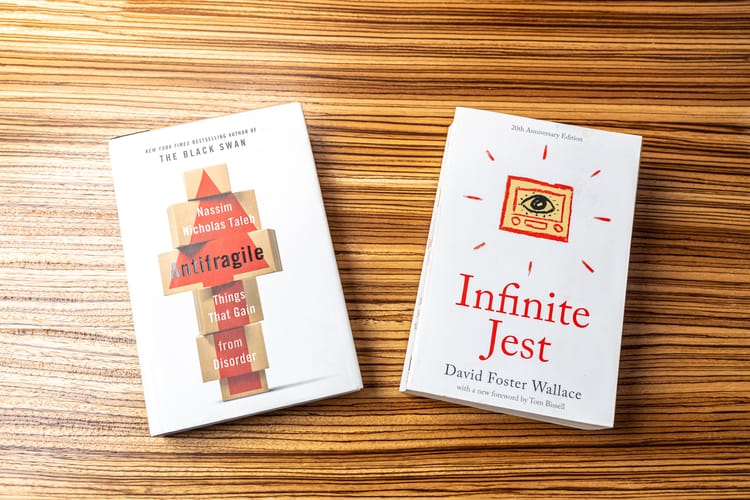2021 Book report

Another year of super nerding out on obscure books
in 2013 I learned how to invest in real estate from the very famous BiggerPockets podcast, and for this education, I owe an immense debt of gratitude, but after listening to 200 episodes the podcast started to get really stale for me, why? The hosts and guests were great and they provide a ton of value but the ceiling for learning real estate is fairly low, that’s not to say it’s not difficult to execute in the real world, but the principles are not complicated. At first, it’s very overwhelming but once you have a grip of it, there just isn’t that much else to learn.
But my soul was still burning with unfed curiosity! Podcasts are great but often they are more entertaining than informative, and I’m not looking to be entertained I want to be educated. That’s when I turned to audiobooks, which I now consider to be the best investment of my entire life.
This year’s book list is a little lighter than previous years because the books I read get longer and denser each year. This is perfectly fine because my goal isn’t to read books, my goal is to learn. So I go as slow as I feel like to get through the content that’s intriguing to me.
Do you want to learn with me? The whole reason I’ve been writing this book content out for the past few years is to find people to learn with.
Best of the year
The Closing of the American Mind
A good portion of my reading has been about moral philosophy, a topic that is both universal and interesting, this book however was the philosophy of a changing American culture, which is something I don’t come across nearly as often.
Written in 1987 by Allan Bloom. This book is a critique of the cultural movement in American life.
The premise is multi-faceted but the big one is that we as a people don’t have an agreed-upon set of values, and when everyone can make their own values those beliefs tend not to be tested by the rigor of time. Contrary to the goals of those who would perpetrate this way of thinking, this actually makes people dumber as a whole. The book also describes how this changing system is being distributed through the education system and pop culture. Postmodernism, which is essentially the term that describes this movement is a philosophical idea that I have become enamored with understanding and learning more about over the last 2 years or so. In really simplest terms, it’s the idea that every individual has their own truth, and that truth is equal to everyone else. Bloom goes into extreme and sophisticated detail about why this is a self-defeating idea and provides all the historical context that could be asked to convince you of his position.
This book is very similar in ideas and naming structure to a book that was written decades later called “The Coddling of the American Mind” which I absolutely loved and wrote a reasonably nuanced review of here.
Both books have a big overlap in ideas but are separated by 30 years which gives the reader a broad timeline to assess changing Amercian trends against each author’s claims.
This book is going to stick with me for life, it’s dense and 100% full of abstract and often controversial ideas but man it hits hard if you like that sort of stuff.
“Freedom of the mind requires not only, or not even specially, the absence of legal constraints but the presence of alternative thoughts. The most successful tyranny is not the one that uses force to assure uniformity but the one that removes the awareness of other possibilities.”
“What poor substitutes for real diversity are the wild rainbows of dyed hair and other external differences that tell the observer nothing about what is inside.”
The Righteous Mind
Is it a fantastic coincidence that my second favorite book of the year was written by Jonathan Haidt, who wrote the aforementioned “Coddling of the American Mind”. Starting to seem like American cultural philosophy is my JAM. I can’t get enough of it.
Side note about that, it took me nearly a decade of nonstop reading and I’m just now starting to realize what topics and ideas I like to learn about. This is why when someone says to me “What’s one book you would recommend” I get enraged. There is no one book, it takes a lifetime of learning to get a grasp on yourself and the world. Read everything!
This book is about our political discourse and why it’s so difficult to find agreement between people these days. Did you know that a lot of it is biological!? It’s true, people are hardwired to value certain aspects of morality differently.
If you’re frustrated with poor-quality discourse these days, this book will help illuminate some of the reasons why that’s happening.
“Morality binds and blinds. It binds us into ideological teams that fight each other as though the fate of the world depended on our side winning each battle. It blinds us to the fact that each team is composed of good people who have something important to say.”
“The human mind is a story processor, not a logic processor.”
Notable mentions
The Fourth Turning
This book describes how human behavior moves in cycles. Their claim is essentially an extrapolated explanation of the old saying “great men create great times, great times create weak men, weak men create hard times, hard times create great men”.
They use a historical model to show when these cycles have occurred in our culture and their main prediction is that we are currently in the great times, and the culture is on track to self destruct. Specifically they claim this will occur not later than 2024.
This is not scientific in any way, and it’s important to mention that over-correlation of data is how creates crazy conspiracy theories are made, so it might be correct to dismiss this book as just the looney rantings of a well concocted albeit uncorrelated narrative.
With all that said, there is great appeal to buy into it’s claims. The culture is currently the most entitled I’ve ever seen it, the federal debt is the highest in history, we have an expanding inflationary problem, our political polarization is extremely high, inequality is high, and there is nothing that seems will be able to fix these problems on the horizon. So perhaps in 2024 we will see a reformation of the American way of life, and if so, the question then becomes whether this book’s claims are mere coincidence or really the accurate prediction of inevitable human nature.
Moby Dick
Obsession is a quality of human behavior that I find fascinating. I’m prone to the feeling myself but reading Ahab’s quest for the white whale allowed me to understand obsession to a new extreme.
“Swerve me? The path to my fixed purpose is laid with iron rails, whereon my soul is grooved to run. Over unsounded gorges, through the rifled hearts of mountains, under torrents’ beds, unerringly I rush! Naught’s an obstacle, naught’s an angle to the iron way!”
Moby Dick is also interesting because it’s a book that everyone knows but few have read. This made me see an obvious gap in my knowledge and understanding of my culture, one that I’m glad I finally overcame.
My biggest criticism is the story is only a small part of the book, the first ~20% and the last 10% were captivating, but the middle 70% of the book was a long and dry description of whaler life, which I did not find interesting. This is part of the pain that comes with long books, sometimes they are unnecessarily long, or sometimes they are filled with things that just aren’t exciting.
War and Peace
Another long and tedious classic I wanted to be able to say I’ve read. It’s hard to extract many quantifiable lessons from this book, but I’ll try.
The first is, people are complicated and rarely good or evil but ever changing shades of grey.
The second is: those who are at peace are most at war with themselves, and those at war are most at peace with themselves.
The story follows 2 groups, one in France at peace and one at the front of the Russian/French war. The people in France are important socialites and are a miserable bunch of backstabbers and opportunists who are ambitious for no real purpose or meaning. The soldiers at war show an extremely high respect for their enemy, the greater purpose of what they are doing, and all seem more or less ok with the part they play in the larger forces at work.
I find this to be an extremely accurate representation of my time in the army versus my time at peace here in America. People in our society have no real problems, so they make problems up and fight amongst each other, I suppose out of boredom. At war, there is purpose and unity, and no in-fighting.
The Great Influenza
I wrote a long review of this book here. Reading this gave me a much healthier insight into the current Covid pandemic.
Timelapse video
When I moved into my current house I put all my books on the shelf quickly and without any rhyme or reason to their organization. It was unbridled chaos and I adored it.
She hated it, and it wasn’t a hill I wanted to die on, so I let her organize it for me and she did so by color which I think is dope!
Enjoy!
The 2022 RE-READ goal
in 2022 I’m going to commit to re-reading a few of the most important books I’ve read so far and I’m inviting everyone to read them with me. It feels like a good time in my life to do so and feels like it would be useful to remind myself of principles I’ve learned along the way, things that I remember, but that I want to burn more deeply into my brain so I live, breath, and become them.
This will start promptly on January 1st, I will be doing weekly zoom chats to get through them all, and to stay included you can check the Facebook book club.
The list is currently as follows:
Infinite Jest – a super long and difficult book about consumerism, addiction, vanity, and American culture. I adore this book
Antifragile – Written by Nassim Taleb, the person whose ideas I respect most on this earth. It’s an engaging and unique blend of finance and philosophy, this is my favorite book of all time
Thus Spoke Zarathustra – Moral philosophy by Friedrich Nietzsche. A book about hyper-individualism, and how to truly become one’s own self.






Member discussion